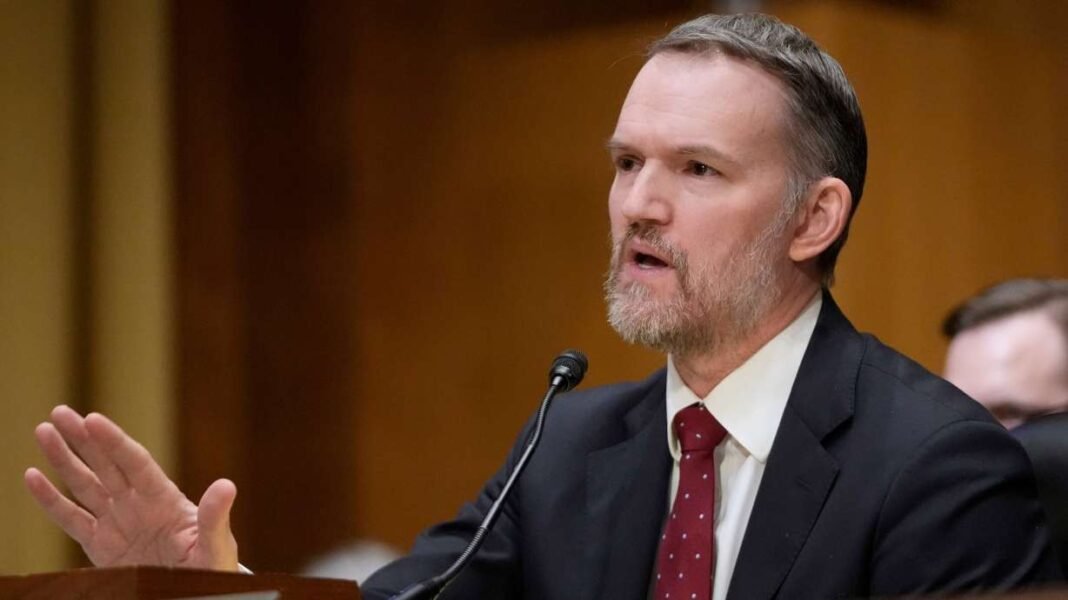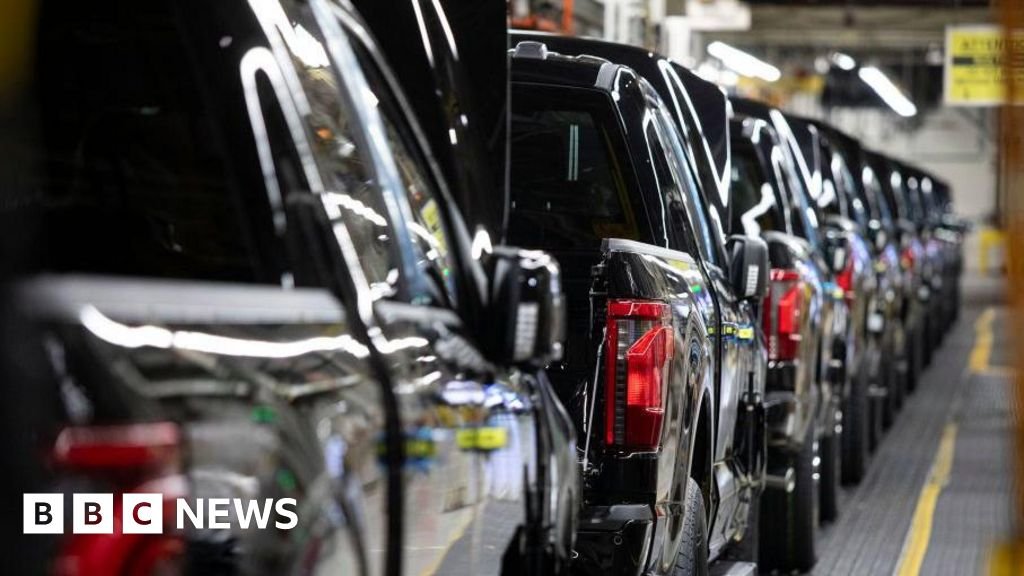WASHINGTON — U.S. trade representative Jamieson Greer defended President Donald Trump’s global tariffs as “already bearing fruit” despite mixed messaging from the White House about whether the tariffs are being used as a negotiating tactic or a permanent policy.
Greer appeared before the Senate Finance Committee on Tuesday morning, making him the first Trump administration official to testify on Capitol Hill since the president announced sweeping tariffs last week, sending the global stock markets into turmoil. The trade chief acknowledged short-term pain caused by the tariffs but argued the long-term strategy is already showing signs of progress.
“Nearly 50 countries have approached me to discuss the president’s new policy and explore how to achieve reciprocity,” Greer said in his opening remarks. “Our large and persistent trade deficit has been over 30 years in the making, and it will not be resolved overnight, but all of this is in the right direction.”
Greer faced tough questions from both Democrats and Republicans, who pressed the top trade official on Trump’s tariff strategy as the levies are set to go into effect on Wednesday against certain countries on top of the blanket tariffs the president implemented last week.
“In the last week, the White House has been all over the map when it comes to this question,” committee ranking member Sen. Ron Wyden, D-Ore., said in his opening remarks. “There is no clear message about how these tariffs were determined, what they’re supposed to accomplish, how long they will be in place, whether they’re a negotiating tool or a move to try and cut the United States off from global trade and usher in a new era of 1870s-style protectionism.”

Greer said most countries hit with tariffs have made clear they don’t want to explore retaliatory measures and would be open to negotiations. Greer also testified that Trump is willing to discuss eliminating trade barriers and lowering the national deficit, although he sidestepped questions on the president’s long-term strategy.
“As the countries come to approach us, what we’ve told them is, ‘If you have a better idea to achieve reciprocity and to get our trade deficit down, we want to talk to you. We want to negotiate,'” Greer said.
Senators press Greer for timeline
However, senators urged Greer for details on how the Trump administration would ensure local businesses are not used as collateral damage, warning that dragged-out negotiations could last longer than some small business owners can survive.
“I hope you and the president are sensitive to companies potentially going bankrupt by these actions,” Sen. Ron Johnson, R-Wis., said to Greer, calling tariffs a “double-edged sword.”
Greer said the administration was moving “as quickly as possible” to finalize negotiations but acknowledged he did not have a “particular timeline” for when those would be resolved.
That prompted a tense exchange between Greer and Sen. Catherine Cortez Masto, D-Nev., who argued economic negotiations often take months, if not years, before they are resolved. Masto cited Greer’s work on the United States-Mexico-Canada Agreement in Trump’s first term, which the trade representative testified took about two years to finalize.
Using that as a reference, Masto argued, negotiations with dozens more countries would take much longer.
“You’re telling us you have nearly 50 countries coming to you, approaching you to enter into negotiation, and you think that you can do that overnight?” Masto said. “You’re pretty superhuman here, if that’s the case.”
Republican Sen. Thom Tillis of North Carolina had harsher words for the trade representative.
“(Tariffs are) a novel approach and need to be thought out,” he said. “Whose throat do I get to choke if this proves to be wrong?”
Yelling match ensues over blanket tariffs
Greer engaged in a number of other contentious back-and-forths throughout the hearing, particularly on Trump’s decision to issue a 10% baseline tariff on all imports — even on some of the country’s closest allies.
Johnson told Greer he was “disappointed” by Trump’s decision not to consider exclusions for the global tariffs. Greer confirmed that Trump has directed no exceptions for steel and aluminum tariffs or for products made in China.
Sen. Mark Warner, D-Va., particularly hit Greer on that point, raising his voice as he sternly questioned the trade representative on why the Trump administration is issuing tariffs on “friend and foe alike.” Warner pointed to tariffs on Australia, of which the United States has a large trade surplus and exports more than twice as much as what it purchases from the country.
Warner claimed such tariffs undermined national security and made the U.S. appear as a bad trading partner.
Sen. Chuck Grassley, R-Iowa, also questioned Greer on the motivations behind the blanket tariffs and whether Trump’s plan was solely to negotiate better trade deals.
Greer assured that negotiations were ongoing but said that deals would be decided “country by country.”
Markets in brief rebound, but Greer brushes off concerns of inflation
After Trump announced tariffs last week, the global stock markets were sent into upheaval as countries were unsure how to react to the unprecedented move.
Despite tanking numbers at the beginning of the week, the markets appeared to rebound on Tuesday before tanking once again hours later — prompting Sen. Steve Daines, R-Mont., to express “hope that these tariffs are means and not solely an end.”
Other senators pressed Greer on whether the Trump administration is thinking about contingency plans or monitoring certain states that could be hit harder depending on their imports. Daines especially cited concerns about potential inflation that will hit U.S. consumers as a result of the tariffs.
However, Greer sidestepped questions from committee members on whether the Trump administration would reverse tariffs if it caused record-high inflation or a crash in the stock market. Instead, Greer said those hypotheticals were not consistent with outcomes in Trump’s first administration.
“When we did tariffs in the first term, inflation went down,” Greer said.
Although most countries appear to be open to negotiations, the U.S. is inching closer to a trade war with China as the two countries have volleyed tariff threats over the last week. Shortly after Trump’s announcement last week, China retaliated by announcing its own tariffs.
Trump then responded on Monday by announcing an additional 50% tariff on China, and China retaliated with an 84% tariffs on U.S. goods from Thursday.
The Key Takeaways for this article were generated with the assistance of large language models and reviewed by our editorial team. The article, itself, is solely human-written.




